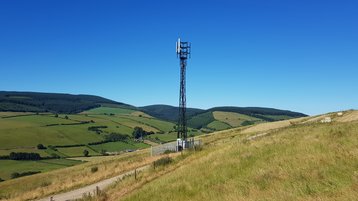British telecommunications holding group, BT Group has launched new technology to improve energy savings across EE mobile sites. Called ‘cell sleep’ technology, this innovation is expected to significantly save energy used, with projections of up to 2KWh per site per day, translating to approximately 4.5 million kWh annually across EE’s network. By reducing its demand on the local grid, BT aims to support network efficiency and sustainability.
The deployment of this technology follows successful trials across England, Scotland, Wales, and Northern Ireland, according to BT. The ‘cell sleep’ software operates by selectively putting certain 4G LTE carriers to sleep during predicted periods of low traffic, identified through machine learning. During peak times or unexpected surges, the system can automatically wake up, with provisions for ‘deep sleep’ during minimal demand periods.

Greg McCall, BT Group’s Chief Networks Officer, highlighted the significance of this initiative, stating, “There is huge potential for energy savings across our networks by dynamically matching power consumption against network usage.”
“The optimization and roll-out of cell sleep technology to over 19,500 sites across the UK is a significant milestone in achieving this, and an important development in countering the massive growth in data consumption we’re seeing across our networks,” he stressed.
BT revealed that its networks account for around 89 percent of its total energy consumption, and this optimization will help it to achieve net zero by March 2031.
BT recently completed the shutdown of its 3G mobile network, anticipating additional energy savings of 17.44 million kWh annually.




